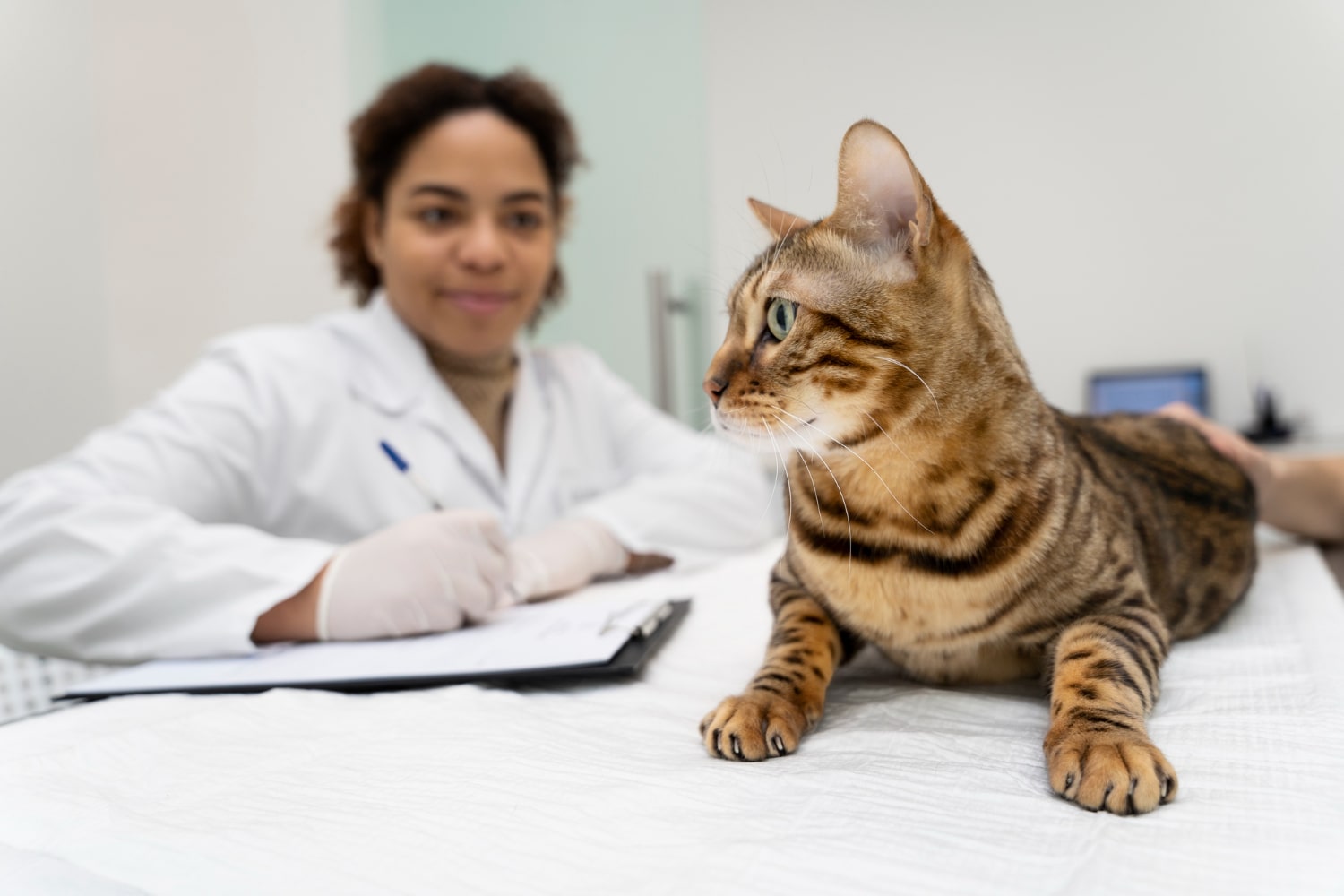This World Veterinary Day, on Saturday 26 April, we celebrate the humans who work tirelessly to protect the health and wellbeing of our cats and other pets: vets. The 2025 World Vet Day theme, Animal health takes a team, recognises the collaborative effort behind every healthy pet, and at the heart of is your vet and their team.
Whether you’re a new pet parent or have shared a home with pets for many years, regular vet check-ups are essential. However, more than simply ticking a box, this is an opportunity to ask the right questions. Questions that could improve the quality of life for your pet.
According to Dr. Guy Fyvie, Senior Veterinary Affairs Manager at Hill’s Pet Nutrition South Africa, Veterinary care isn’t about diagnosing problems alone, it’s about building a relationship with your vet and creating a shared plan for your pet’s lifelong health. Don’t be afraid to ask questions – vets welcome them.
Dr. Fyvie shares the top five questions you should be asking your vet about your cat:
1. Is my cat at a healthy weight, and how can I tell?
Obesity is one of the most common health issues in pets today, yet it’s easy to miss. Many cat parents only realise their feline is overweight once other health problems surface. Your vet can help assess your cat’s body condition score and recommend diet or lifestyle changes if necessary.
“Weight plays a major role in your pet’s joint health, mobility, and even lifespan,” says Dr Fyvie. “No matter how small a reduction in weight, it can make a big difference.”
2. What should I be feeding my cat, and how much?
Your vet knows your cat’s unique medical, and lifestyle needs and can give clear, objective advice based on science rather than trends. In fact, extensive research has shown that the right nutrition can assist in managing disease conditions.
3. Are my cat’s vaccinations and parasite preventions up to date?
It’s easy to fall behind on vaccinations, deworming or flea and tick treatments, especially with indoor cats. However, staying on top of these preventative measures can save your cat from potentially serious illnesses down the line.
4. Is this behaviour normal, or should I be concerned?
Changes in behaviour, from hiding, whining, aggression, or going off food, can be early warning signs of discomfort, pain or emotional distress. Your vet can help identify the cause or refer you to a cat behaviourist if need be.
5. What changes should I expect as my cat gets older?
Cats age faster than we do, and each life stage brings new health needs. Asking your vet about what’s coming next, from diet changes to more frequent check-ups, means you can plan and support your feline through every chapter of life.
“The earlier we can pick up on age-related issues, the better we can manage them,” explains Dr. Fyvie. “From dental care to mobility support, there are so many ways we can help cats and other pets age gracefully.”
By asking the right questions of your pet care team, you become more informed, more prepared, and more connected to the one who matters most, your cat!




